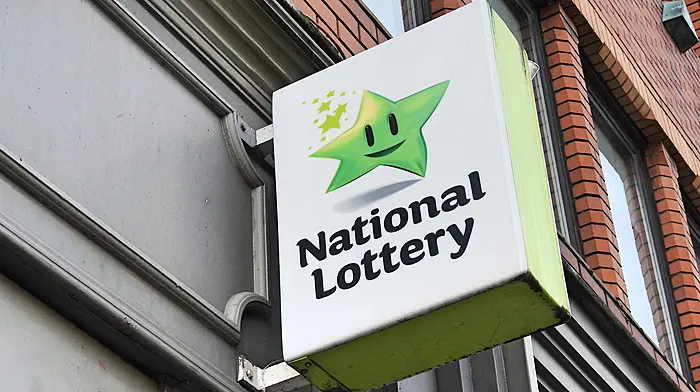
CAPITAL Acquisitions Tax (CAT) is a tax on gifts and inheritances. The current rate is charged at 33% on gifts or inheritances made on or after December 5th, 2012.
You can get a certain amount of gifts and inheritances without paying CAT. The amount depends on your relationship to the person you get them from. Relationships are grouped into three categories with different tax-free limits.
CAT applies to all property in Ireland. It also applies if the property is not in Ireland but the person giving or receiving it is resident or ordinarily resident in Ireland for tax purposes.
What gifts and inheritances are fully exempt from CAT?
The following are exempt from Capital Acquisitions Tax.
• Gifts or inheritances from your spouse or civil partner
• Gifts for the support, maintenance or education of a child or dependent relative of yours or your spouse or civil partner
• An inheritance you get from your child if, in the previous five years, they took a gift or inheritance from either parent and it was not exempt from CAT.
The first €3,000 of the total value of all gifts from any one person in any calendar year is exempt. So, you could get a gift from several people in the same calendar year and the first €3,000 from each person is exempt from CAT. You do not need to make a Capital Acquisitions Tax return to claim the small gift exemption for gifts under this limit. This exemption does not apply to inheritances.
If you get a gift or inheritance of a house that has been your main residence, it may be exempt from tax if you do not own or have an interest in any other house. There are conditions on how long you must be resident in the house.
What are the tax free thresholds for CAT?
You do not have to pay CAT if the amount you get is below a certain limit. The tax-free amount, or threshold, depends on your relationship to the person who gives you the gift or inheritance.
There are three different groups of relationship. The groups are called A, B and C. The limit for each group is for the total amount you got in that category since December 5th, 1991.
Budget 2025 increased the thresholds from October 2nd, 2024. The following table outlines who is in each group and the tax-free limit that applies for each group:
The Capital Acquisitions Tax group thresholds from October 2nd 2024 are:
Group A: €400,000 for:
• Child
• Grandchild, if your parent has died and you are under 18
• Foster child
Group B: €40,000 for:
• Brother or sister
• Parent (in certain circumstances Group A may apply)
• Grandparent, grandchild or other relative you are directly descended from or who is directly descended from you
• Niece or nephew (Group A may apply to assets of a business you have worked in for 5 years)
• Equivalent relationships if you are a foster child
Group C: €20,000 for
• Any relationship not in Group A or B
What is favourite nephew or niece relief?
If you are the nephew or niece of the person who gives you a gift or inheritance, the Group A tax-free threshold may apply if you have worked in their business for the previous 5 years.
Being the nephew or niece of the person giving the benefit means that you are the child of their brother or sister (their sibling) or of their sibling’s civil partner.
To qualify, you must have worked in the business for more than:
• 24 hours per week or
• 15 hours per week if the only others who worked there were the giver and their spouse or civil partner
The relief applies only to assets used in the business. The Group B threshold applies to non-business assets.
What is surviving spouse or surviving civil partner relief?
This relief applies if your spouse or civil partner has died and you get a gift or inheritance from someone who was more closely related to them than to you. In that case, the group threshold that applies to you is based on the relationship between the giver and your spouse or civil partner.
What is the valuation date for the gift or inheritance?
The value of a gift or inheritance for CAT is its market value on the valuation date. In the case of a gift, the valuation date is usually the date of the gift, while in the case of an inheritance, the valuation date is the earliest of the dates when the inheritance:
• Can be set aside for or given to you
• Is actually set aside for you
• Is transferred or paid over to you
Valuation date is the date of death if:
• Someone gave you a gift in anticipation of their death.
• The giver reserved the right to take back the gift but has not done so.
• The property passes by survivorship. This means you had a right to the property because of the death of another person who had an interest in it. For example, if you are joint tenants and you inherit the property when the co-owner dies.
How is the taxable value assessed?
The value of your gift or inheritance is the best price you would get for it on the open market on the valuation date.
The taxable value is the market value minus allowable deductions.
How do I go about paying CAT to Revenue?
You must make a tax return if the total value of gifts and inheritances you get in one of the groups (A, B or C) is more than 80% of the tax-free threshold for that group. If the valuation date is between:
• January 1st and August 31st, you must file your return and pay by October 31st in that year
• September 1st and December 31st, you must file your return and pay by October 31st in the following year.
• See Revenue.ie for more










